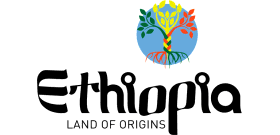Ethiopia's Gigantic Dam Unlocks New Era for Nile Basin & Eco-Tourism Potential

The Grand Ethiopian Renaissance Dam (GERD) is emerging not only as a transformative economic catalyst through its energy output but also as a significant opportunity to spark tourism-led growth in Ethiopia, particularly within the Benishangul Gumuz Region. This mega-project, built with the contributions and sacrifices of Ethiopians, stands as Africa's largest hydropower project with an installed capacity of 5,150 megawatts, symbolizing African self-reliance and national assertiveness.
GERD provides a unique ecotourism and natural showcase, poised to significantly boost Ethiopia's tourism and hospitality sectors. The reservoir has created a large artificial lake, anticipated to be around 1,700 km², featuring more than 70 islands, a thriving aquatic ecosystem, and new biodiversity zones. This opens doors for diverse activities such as boat tours, bird watching, fishing trips, and appreciation of scenic landscapes. The dam also sets a stage for the preservation of indigenous fish species and plants, maintaining the balance of nature and the ecotourism environment around the dam.
Beyond natural attractions, tourism potential lies in the reservoir's numerous islands and shores, which are prime for floating resorts, lakeside lodges, and cultural tours. These tours can celebrate the rich heritage of local indigenous groups like the Berta, Gumuz, Mao, Komo, and Shinasha. A feasibility study has already proposed a floating resort project on the GERD lake, aiming to spur economic activity and recreational appeal. Additionally, the lake offers opportunities for organizing sports competitions like canoe and rowing, similar to recreational tours enjoyed on Lake Tana.
The reservoir has already begun to foster a new freshwater fishery scene, with an anticipated annual yield of several thousand tonnes. This could support local restaurants, food tourism, and fish-related businesses, attracting tourists from the Middle East, Europe, and Asia. Investments are underway in hatcheries, processing facilities, and distribution networks, which can integrate with hospitality to ensure fresh, local cuisine becomes a major tourism draw. Ethiopia's deep connection between food and cultural identity, religion, and regional diversity makes it ideal for food tourism, with the Benishangul-Gumuz region boasting unique, underexplored culinary traditions from the Gumuz and Berta ethnic groups. Involving local communities in food preparation, storytelling, and cultural performances offers authentic experiences and sustainable income.
The dam also has the potential to boost irrigated agriculture in the region. Tourists can explore lakeside farms, participate in harvesting local produce, and engage in farm-to-table experiences. Floating restaurants, lakeside cafés, or eco-lodges serving local dishes could provide visitors with unique dining experiences offering views of the dam, lake, and wildlife. Hosting regional food festivals celebrating local ethnic dishes and music would further increase visibility and tourist inflow at GERD.
Regional planners foresee tourism becoming the second pillar of economic activity in Benishangul-Gumuz, right after agriculture. In 2022/23, the region hosted 40,600 tourists, mostly domestic, generating over 103 million Birr, an 18% growth over the previous year. The region has earmarked 69,000 hectares for investment across sectors, including tourism, hospitality, fish farming, and agriculture, especially post-dam.
To realize this potential, strong infrastructure and services are critical. This includes access roads, boat facilities, hospitality services, docks, visitor centers, power, and water access. Major strides have been made to connect the region, with a bridge over the Blue Nile and upgraded roads significantly reducing travel distances since 2012. Asosa Airport also services the regional capital, enhancing air access, though further expansion is needed. A combination of water-based tourism spots, island eco-lodge resorts, integrated lakefront resort zones, and the development of digital guide applications could maximize the benefits from GERD ecotourism.
Conservation and environmental protection are essential to preserve the dam's natural appeal and longevity. Research indicates a significant increase in water and sediment yields in the Blue Nile Basin, particularly upstream of GERD, posing a risk to the dam's storage capacity. To mitigate this, the government has mobilized community-based participatory watershed protection programs since 2011, involving locals in environmental protection. While GERD was designed to trap up to 100 years of sediment inflow, rapid land degradation necessitates ongoing watershed management interventions. It is crucial to build the region's capacity to organize a regional committee on sustainable development around GERD, with federal government support.
Ethiopia has also taken concrete steps toward smart infrastructure, launching Africa's first all-optical government office at the GERD site, developed with ZTE and Ethio Telecom. This smart setup includes a fully integrated fiber-optic network. Furthermore, the government launched a nationwide smart city transformation initiative. Beyond general security, developing and operating a community-based security system, where local people play specific roles, is important for tourist safety. Strong public-private partnerships in resorts and recreational facilities maintaining global standards are also vital.
The inauguration of the Abbay Dam, as GERD is also known, marks a historic milestone for Ethiopia and the entire Nile Basin. It demonstrates a powerful expression of African self-reliance, achieved through domestic bonds and public contributions, dispelling doubts about Ethiopia's ability to undertake mega-projects. Experts argue that GERD offers an opportunity to replace outdated colonial treaties with modern, cooperative frameworks like the Cooperative Framework Agreement (CFA), promoting equitable and reasonable use of shared resources. The dam is seen as a regional asset, capable of regulating floods in Sudan, ensuring steady water flow for irrigation, generating power for neighboring countries, and reducing evaporation losses, underscoring a shift towards mutual benefit and sustainable development.
Beyond GERD, the Benishangul-Gumuz region offers additional wildlife and ecotourism potential, including protected areas with rich biodiversity. These include Didessa National Park (1,300 km², home to baboons, warthogs, Ethiopian wolf), Mao-Komo National Park (2,330 km², safeguarding diverse habitats), and Alatish National Park (2,665 km², notable for elephants, leopards, kudu, and an undocumented lion population of ~200 individuals). Untapped local ecotourism and community areas like Haro Aba Diko Controlled Hunting Area also hold significant appeal.
Ultimately, GERD presents a rare opportunity to transform Ethiopia's tourism landscape by adding watery, scenic, and cultural layers to its attractions. To ensure sustained tourism development, it is important to invest in supportive infrastructure, engage local communities from the start through planning and equitable benefit-sharing, strengthen peace and conflict resolution frameworks, secure funding and partnerships, and build tourism awareness and capacity through training for hospitality, conservation, and digital navigation tools. Strong marketing and promotion through websites and information packages can further increase tourist influx, with GERD also serving as a tool for promoting peace and stability in the Horn of Africa through clean hydroelectric power.
You may also like...
F1 Shocker! Red Bull Star Stripped of Italian Grand Prix Victory After Dramatic Race Blunder

The Italian Grand Prix at Monza delivered a mix of record-breaking triumphs and dramatic incidents. Max Verstappen secur...
Chaos Erupts! Serbia vs England Match Marred by Fan Fights, Lasers, and Stadium Incidents

England's commanding 5-0 victory over Serbia in a World Cup qualifier was overshadowed by numerous crowd disturbances, i...
Hollywood Legend Michael Caine, 92, Ends Retirement for Vin Diesel's Action Sequel

Veteran actor Sir Michael Caine, aged 92, is set to come out of retirement to star alongside Vin Diesel in a sequel to “...
Charlie Sheen's Shocking Netflix Doc Explores Wild Revelations & Comeback Hopes

Charlie Sheen's new two-part Netflix documentary, “aka Charlie Sheen,” chronicles his tumultuous life, from his rise to ...
MTV VMAs 2025 Shocker: Tyla's Historic Win, Full List of Winners, Performers & Presenters Unveiled!

The 2025 MTV Video Music Awards crowned Lady Gaga as the night's big winner, taking home multiple trophies including Art...
Holy Ten's War with Mnangagwa's Son Ignites: Death Dares and Terrorist Accusations Unleashed

Zimbabwean hip-hop artist Holy Ten has launched a scathing attack on President Emmerson Mnangagwa's sons, Collins and Se...
Scandal Erupts: Alexander Brothers Face Mounting Assault Allegations

The Alexander brothers, luxury real estate moguls, face sex trafficking and sexual assault charges from over 60 alleged ...
Rock Legends Unite: Oasis Reunion Tour Ignites Legal Battles and Fan Frenzy!

The iconic band Oasis has reunited for a highly anticipated world tour in 2025, bringing original members back together ...

